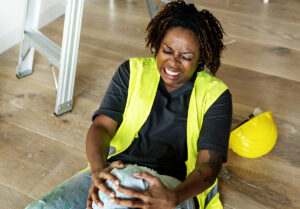 Refer to incidents that occur on construction sites resulting in injuries or fatalities to workers, bystanders, or visitors. These accidents can encompass a wide range of situations, including falls from heights, struck-by or caught-between incidents, electrocutions, equipment malfunctions, collapses, fires, or explosions.
In legal terms, liability for construction site accidents may rest with various parties,
including property owners, general contractors, subcontractors, architects, engineers,
equipment manufacturers, or suppliers. Employers have a duty to provide a safe working environment and comply with occupational health and safety regulations. Failure to do so may result in legal consequences such as fines, penalties, or civil lawsuits.
Victims of construction site accidents, including injured workers or their families,
may pursue compensation for damages through workers’ compensation claims or personal injury lawsuits, often based on premises liability, negligence, or strict liability laws.
Refer to incidents that occur on construction sites resulting in injuries or fatalities to workers, bystanders, or visitors. These accidents can encompass a wide range of situations, including falls from heights, struck-by or caught-between incidents, electrocutions, equipment malfunctions, collapses, fires, or explosions.
In legal terms, liability for construction site accidents may rest with various parties,
including property owners, general contractors, subcontractors, architects, engineers,
equipment manufacturers, or suppliers. Employers have a duty to provide a safe working environment and comply with occupational health and safety regulations. Failure to do so may result in legal consequences such as fines, penalties, or civil lawsuits.
Victims of construction site accidents, including injured workers or their families,
may pursue compensation for damages through workers’ compensation claims or personal injury lawsuits, often based on premises liability, negligence, or strict liability laws. 
Refer to incidents involving the ignition of flames resulting in fire-related injuries, property damage, or fatalities. Fires can occur due to various causes such as electrical faults, cooking mishaps, heating equipment malfunctions, chemical reactions, or arson. Burns, which can range from minor to severe, occur when the skin or other tissues are exposed to extreme heat, flames, chemicals, electricity, or radiation.
In legal contexts, liability for fires and burns may be attributed to property owners, manufacturers of faulty products, utility companies, or individuals responsible for negligent actions leading to the fire. Victims of fires and burns may pursue compensation for medical expenses, rehabilitation costs, lost wages, pain and suffering, and property damage through personal injury claims or lawsuits, often based on premises liability, product liability, or negligence laws.
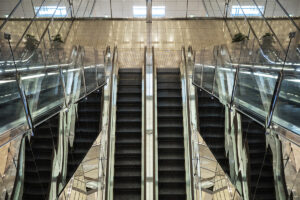 Refer to incidents involving malfunctions, defects, or negligence related to the operation or maintenance of elevators and escalators. These accidents can result in injuries ranging from minor bruises to severe trauma or death. Causes of such accidents may include mechanical failures, electrical issues, improper maintenance, design flaws, or user error.
Refer to incidents involving malfunctions, defects, or negligence related to the operation or maintenance of elevators and escalators. These accidents can result in injuries ranging from minor bruises to severe trauma or death. Causes of such accidents may include mechanical failures, electrical issues, improper maintenance, design flaws, or user error.
In legal terms, liability for elevator and escalator accidents may fall on various parties, including property owners, maintenance companies, manufacturers, or contractors responsible for installation or repairs. Victims of these accidents may pursue compensation for medical expenses, lost wages, pain and suffering, and other damages through personal injury claims or lawsuits based on premises liability or product liability laws.
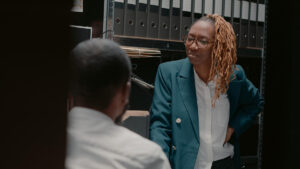 Refers to a legal concept where a property owner or manager fails to provide adequate security measures to prevent foreseeable harm to individuals on their premises. This typically arises in cases where someone is harmed due to criminal activity such as assault, robbery, or vandalism, which could have been prevented or mitigated with appropriate security measures. Examples of negligent security might include insufficient lighting, broken locks, lack of security personnel, or failure to monitor surveillance
Refers to a legal concept where a property owner or manager fails to provide adequate security measures to prevent foreseeable harm to individuals on their premises. This typically arises in cases where someone is harmed due to criminal activity such as assault, robbery, or vandalism, which could have been prevented or mitigated with appropriate security measures. Examples of negligent security might include insufficient lighting, broken locks, lack of security personnel, or failure to monitor surveillance
cameras. Victims of crimes on negligently secured premises may have grounds to seek compensation for their injuries and damages under premises liability law.
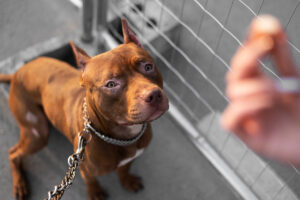 Dog Bites or Animal Attacks refer to instances where a domesticated or wild animal injures or causes harm to a person. In legal terms, these incidents fall under the category of personal injury law, and liability may be determined based on factors such as the owner’s responsibility for controlling the animal and the victim’s conduct leading up to the attack. Laws regarding dog bites and animal attacks vary by jurisdiction, but generally, owners may be held liable if their animal bites or attacks someone without provocation. This liability might include compensating the victim for medical expenses, lost wages, pain and suffering, and other damages.
Dog Bites or Animal Attacks refer to instances where a domesticated or wild animal injures or causes harm to a person. In legal terms, these incidents fall under the category of personal injury law, and liability may be determined based on factors such as the owner’s responsibility for controlling the animal and the victim’s conduct leading up to the attack. Laws regarding dog bites and animal attacks vary by jurisdiction, but generally, owners may be held liable if their animal bites or attacks someone without provocation. This liability might include compensating the victim for medical expenses, lost wages, pain and suffering, and other damages.
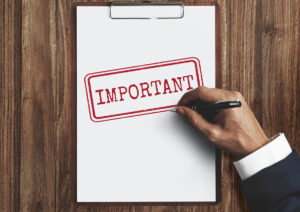 Refers to flaws, faults, or imperfections in property or products that pose a danger to individuals. In legal contexts, it typically refers to conditions on a property or within a product that are inherently flawed or have become so due to wear, tear, or poor construction. These defects could include structural weaknesses, malfunctioning equipment, or hazardous materials. Property owners, manufacturers, or distributors have a responsibility to ensure that their property or products are free from defects that could cause harm to others. Failure to address or warn about defective conditions can result in liability under various areas of law, including premises liability or product liability.
Refers to flaws, faults, or imperfections in property or products that pose a danger to individuals. In legal contexts, it typically refers to conditions on a property or within a product that are inherently flawed or have become so due to wear, tear, or poor construction. These defects could include structural weaknesses, malfunctioning equipment, or hazardous materials. Property owners, manufacturers, or distributors have a responsibility to ensure that their property or products are free from defects that could cause harm to others. Failure to address or warn about defective conditions can result in liability under various areas of law, including premises liability or product liability.
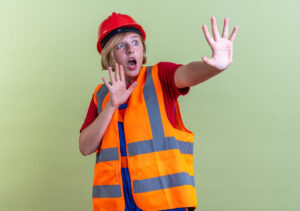 Refers to any circumstances or hazards within a particular environment that pose a risk to the safety or well-being of individuals. In legal contexts, it often pertains to conditions on someone’s property that are not reasonably safe for visitors or occupants. These conditions could include anything from slippery floors and uneven walkways to inadequate lighting or malfunctioning equipment. Property owners or managers have a duty to identify and rectify unsafe conditions to prevent accidents and injuries, and failing to do so may result in liability under premises liability law.
Refers to any circumstances or hazards within a particular environment that pose a risk to the safety or well-being of individuals. In legal contexts, it often pertains to conditions on someone’s property that are not reasonably safe for visitors or occupants. These conditions could include anything from slippery floors and uneven walkways to inadequate lighting or malfunctioning equipment. Property owners or managers have a duty to identify and rectify unsafe conditions to prevent accidents and injuries, and failing to do so may result in liability under premises liability law.
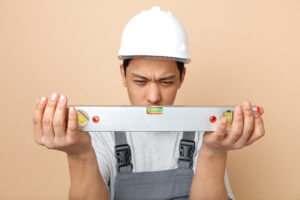 Refers to a situation where a property owner or manager fails to properly upkeep their premises, resulting in hazardous conditions that can lead to accidents or injuries. This negligence in maintaining the property can include neglecting routine repairs, failing to address safety hazards promptly, or disregarding essential upkeep tasks, potentially exposing individuals to harm and liability under premises liability law.
Refers to a situation where a property owner or manager fails to properly upkeep their premises, resulting in hazardous conditions that can lead to accidents or injuries. This negligence in maintaining the property can include neglecting routine repairs, failing to address safety hazards promptly, or disregarding essential upkeep tasks, potentially exposing individuals to harm and liability under premises liability law.
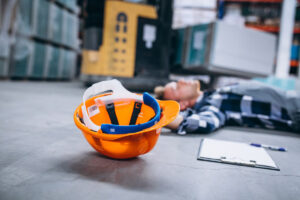 Refer to incidents where an individual slips, trips, or falls on someone else’s property due to hazardous conditions, resulting in injuries. These accidents can occur due to various factors such as wet or slippery floors, uneven surfaces, loose rugs or carpets, debris on walkways, inadequate lighting, or lack of warning signs for potential hazards. In legal terms, slip and fall accidents fall under premises liability law, which holds property owners or occupiers responsible for maintaining safe conditions on their premises. Property owners have a duty to regularly inspect their property, address any known hazards, and warn visitors of potential dangers. If they fail to do so and someone is injured as a result, they may be held liable for the victim’s damages, including medical expenses, lost wages, pain and suffering, and other related costs. Victims of slip and fall accidents may pursue compensation for their injuries through personal injury claims or lawsuits, where they must demonstrate that the property owner’s negligence led to the accident and resulting harm.
Refer to incidents where an individual slips, trips, or falls on someone else’s property due to hazardous conditions, resulting in injuries. These accidents can occur due to various factors such as wet or slippery floors, uneven surfaces, loose rugs or carpets, debris on walkways, inadequate lighting, or lack of warning signs for potential hazards. In legal terms, slip and fall accidents fall under premises liability law, which holds property owners or occupiers responsible for maintaining safe conditions on their premises. Property owners have a duty to regularly inspect their property, address any known hazards, and warn visitors of potential dangers. If they fail to do so and someone is injured as a result, they may be held liable for the victim’s damages, including medical expenses, lost wages, pain and suffering, and other related costs. Victims of slip and fall accidents may pursue compensation for their injuries through personal injury claims or lawsuits, where they must demonstrate that the property owner’s negligence led to the accident and resulting harm.
Brick Law Firm, PC
Personal Injury Attorneys
3100 Interstate N. Circle SE Ste 200
Atlanta, GA 30339
At Brick Law Firm, PC, we focus on areas of practice including: Personal Injury, Negligent Security, Defective Conditions, Dog Bites, Slip and Fall Accidents, Inadequate Maintenance, and more.
